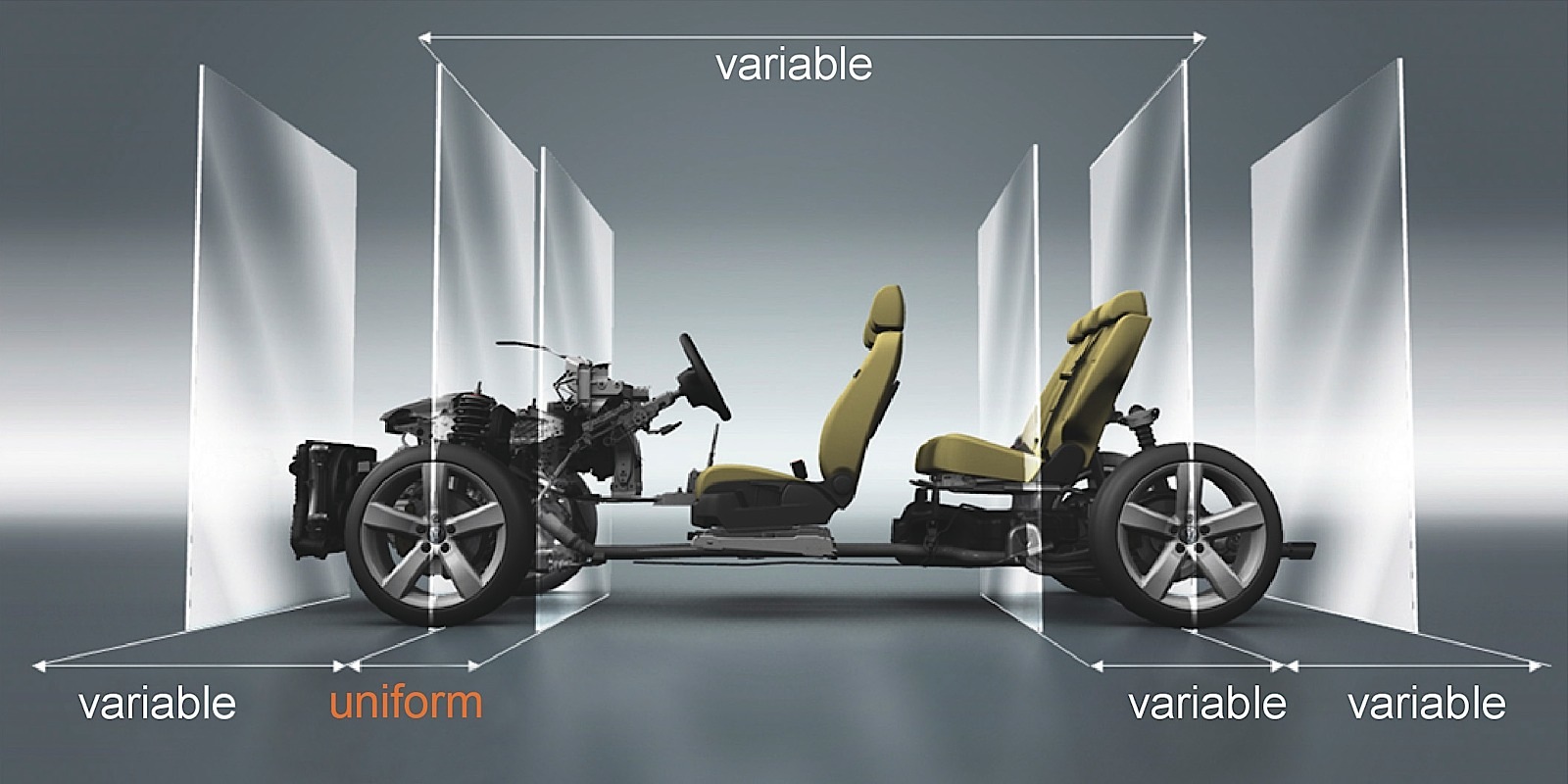Volkswagen has announced the platform that will serve as the foundation for most of their cars, from the tiny Up!, to the Audi A3, to the Skoda Octavia, to the VW Bulli. It's called MQB, or "Modular Transverse Matrix."
Simpy put, the next 30 to 40 front wheel drive models being produced by the Volksgaen group will ride on a unibody platform that has universal engine mounts and a driver pedal box located in the exact same location for every vehicle.
However, almost everything else in the unibody can be adjusted to support a wide variety of body types and car lengths. Everything from seat height, to ground clearance, to body style can be changed within the MQB platform. So unlike recognizable global platforms on our streets today (the Subaru Impreza/Forester and Ford Focus/Escape come to mind), identifying MQB cars will not involve examining cabin widths, engines, or wheelbases. It will simply boil down to three questions: What is the drive train? Who makes it? And when was it produced? If the car is front wheel drive, produced by the Volkswagen group, and released after August 2010, then it rides on the MQB platform.
MQB was announced in 2011 and the first cars to be built upon it are already on the street. They are the VW Jetta and second generation Beetle. The next MQB product is now ready - the third generation Audi A3.
The MQB platform promises to reduce both costs and weight. The floor and roof of MQB vehicles can, in the near future, be made of aluminum, further reducing weight and improving fuel economy. Volkswagen says that the reduced cost will allow for a greater variety of options packages for consumers. Seats could have mor types of upholstery available. Fog lights could become standard equipment. LED lighting inside and out will soon become commonplace. And consumers will want information and navigation consoles, just like the Audis and Lamborghinis today. Rear facing cameras could also become standard equipment in all MQB cars.
Notable cars that will soon adopt MQB include the second generation Skoda Yeti, the Volkswaen Polo Mark VI, the Golf Mark VII, and the Bulli minibus, which is expected to hit North American streets in 2014.
The key trait in MQB is the distance between the front axle and the driver pedals will be the same for every vehicle in the platform. Volkswagen has been modernizing its manufacturing facilities for about 10 years now, and the new platform is one of several that it will use worldwide (there will be two luxury rear wheel drive platforms for the premium brands to use, such as Lamborghini and Bentley).
The platform reduces the number of different parts that connect the engine compartment to the firewall and passenger cabin. Volkswagen says it will simplify global manufacturing and reduce costs, and allow the use of any of VWs new aluminum engines. We know them well. The direct injection gasoline. The TDI (diesel). A new plug in hybrid. Two natural gas engines. A biodiesel. And now, an electric motor that VW wants to offer in the Up!, Golf, the Audi A3, and possibly, the Bulli.
I'll be at the 2012 New York International Auto Show in April, and I hope to see more examples of the global MQB platform. Volkswagen has lofty goals to sell about twice the number of cars it currently manufacturers worldwide. MQB is necessary in order for VW to achieve those goals.


